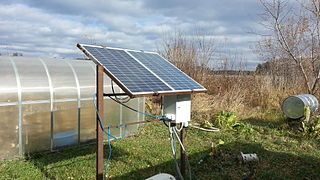From Guest Blogger Heather Roberts: Solar Power Purchasing Tips and Guidelines

• Getting Recommendations
You should ask your family members, coworkers and friends for advice in case they have any PV systems in their homes or if they know someone who can help with said advice. They will have a chance to share their experiences with you for more information on the subject and what you can avoid.
• Checking the Manufacturer’s Warranty
Take a good look at what guarantees are available from the manufacturer. If they are reputable and their warranty period of the panels is a pretty long one, such as no less than 25 years, then you can expect the system to last with less issues. This will ensure you have more than enough time for it to pay off in the long run. If you want the warranty to be honored however, you will need to make sure you have a manufacturer who will still operate years from now, so stick to stronger brands if you’re afraid of using smaller companies and their products.
• Have Realistic Expectations
If you happen to be paying a lot less for any systems quoted with the same parameters, then you may have some pretty poor equipment on your hands. Good equipment and installation won’t be exactly cheap, so just like other purchases you will most often get what you may for. Check the warranty periods, components and even the company which happens to provide installation services. Smaller companies may strive to reduce their costs to be competitive by cutting down on some things and cutting corners, so keep that in mind when you make your purchase.
• Certification for Solar Panels
This will apply to all solar panel purchases, especially if you can get a government rebate on any of them. The certification of panels shows the type of testing that was performed on them, whether it was tested by an independent laboratory or that they meet the specifications advertised by their manufacturer. The TUV IEC 61215 certification shows the aforementioned, so you would do well to ensure your future purchase covers it, otherwise you can only count on the good word of the manufacturer and their honesty.
• Deciding on Panel Types
In most cases you used to have little choice when it comes to limited roof space, so you needed really high efficiency mono-crystalline solar panels, but thanks to some really nice changes and advances in technology we now have polycrystalline panel tech as well as some lovely thin film tech as well that gives greater flexibility. If you do have a lot of roof space you should still consider the size vs output ratio in case you want to add more panels later down the line. No matter what, make sure your panels will see more than enough sunlight and think strategically when you make your purchase.
Written on behalf of: Self Storage Facility Wandsworth
Heather Roberts is a freelance guest blogger from London, UK. She has got many published articles on various topics such as moving, storage, organizing, home and garden etc. She loves to spend her time with family and friends and she also tries to live an eco-friendly life.
